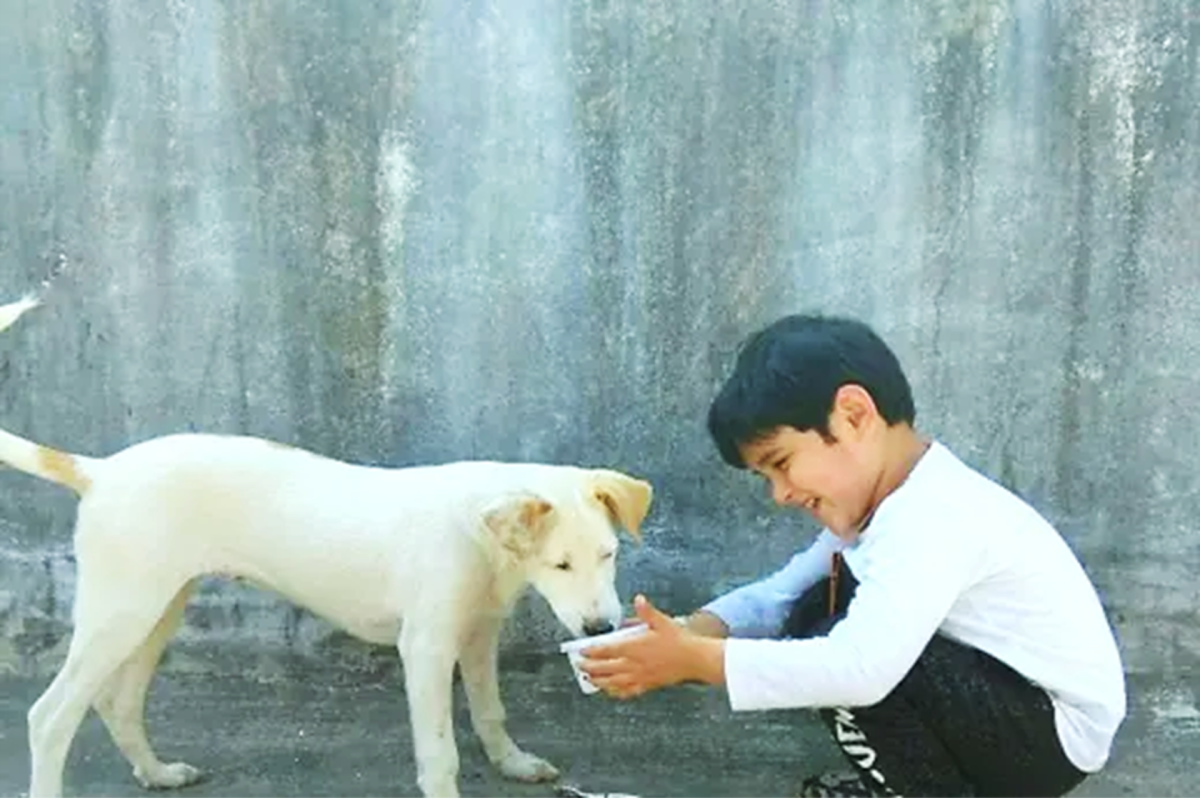Why Do We Love Pets? Is It in Our Genes to Have Compassion for Animals?

Why Do People Care About Other Species?
There is nothing like walking through the door and being greeting with that unconditional love that our pets give us. Dogs show us a span of emotions including love, curiosity, anxiety and it is these feelings that help us bond on a human level with our pets.
Dogs are very good at reading our emotional cues and social behavior patterns. They know how to get attention from us, and we get unlimited affection from them. People are in love with their pets. The bonds people have with cats, dogs, and other pets are strong, long lasting relationships. Our pets become our best friends, our confidants, and in some ways, our children. They become important members of our family.
There is a feeling of closeness, of friendship, with our pets. We have a camaraderie that provides a comfort deep, honest and true.
An Innate Response
So where does this desire, this need, this bond come from?
There are plenty of people in the world, why do we grow close to other species? It is believed that this need to share our lives with domesticated animals is hardwired within us. We are innately designed to respond to animals. Going back to evolutionary times, man has surrounded themselves with domesticated animals. Through research, science believes that it is actually an innate quality humans have to respond to other beings. It can be traced to our evolutionary past dating back hundreds of millions of years.
Petting an Animal Releases Good Internal Chemicals
Researchers also found that oxytocin, a natural forming hormone within us, which is associated with bonding, stress reduction, and socialization, increases when people pet a dog.
This may be part of the reason, petting an animal helps us feel more relaxed. In addition pet ownership improves the lives of people they touch, through reducing stress, providing companionship, and adding longevity to their owners. From fish in a fish tank to the wagging tails of dogs, pets improve the quality of people’s lives in more ways than science has yet to study. In a 2002 study,multicolored fish in a fish tank improved the eating habit of people who had Alzheimer’s disease and postively affected their previously disruptive behavior.


Biologically, the need to care for other creatures can be found in the part of the brain called the amygdala (pronounced - amig dee la). The amygdala is related to our emotions. When researchers at the California Institute of Technology and UCLA measured brain activity, in 41 participants, they found that the amygdala showed extreme activity when they looked at pictures of animals compared to pictures of buildings or pictures of people.
Surprisingly, it didn’t matter if the animal was cute and cuddly like a cat or a dog, or it was a rodent, snake, or a spider and other kind of animals. All evoked the same level of brain activity in people. Both the right and left side of the amygdala had emotional responses. Scientists concluded that the ability to recognize the presence of another animal (friendly or dangerous) became integral for our survival. Our need to nurture, care for and love another being creates bonds that run deep within human nature.
The Rewards of Having a Pet
Pet ownership has been found to be a wonderful return on investment. The love you give them, the care and attention you bestow on them, and the things you teach them are returned many times back in the unconditional love, nonjudgmental attitude, and deep loyalty they will always give you.
We have an undeniable connection to animals, one that is deep, magical and heartfelt. We want to care about and care for other species. Pets live in 50% of European and North American homes. Americans spend over $8 billion on dog and cat food. In the U.S., aquariums and zoos bring in more people than all the major league sports teams combined. In 1999, approximately 600 million visitors worldwide went to zoos and aquariums. Safaris and wildlife tours increase every year. More than 80 million people feed birds, 70 million are bird watchers, and there are more than 18 million wildlife photographers.
Biophilia - What is It?
The animal human bond offers us comfort, social companionship and support. Animals reinforce our own self value through their unconditional love. Animals increase our confidence and help develop our sense of self. Animals appeal to our need to be social.
They help us heal physically and psychologically, make us healthier and lengthen our years. They link us to nature and enhance emotional expressions through nurturing, and help enhance a relationship between animals and humans.
Animals offer us many positive physiological and psychological benefits. Humans have a need to care for others - to find comfort among another beings. The concept of the nurturing instinct comes from studies done on stress response, which showed gender differences.
Women respond to stress by nurturing and tending to others. Men isolate themselves from others. There is no data from studies about how men and women bond with animals differently. Animals offer a calming and focusing effect.
The companionship of a pet strongly predicted the successful recovery after a heart attack. People who watched an aquarium had lower blood pressure and reduced stress.
Children who have ADHD were more focused when animals were included in an activity.
People develop strong emotional bonds to animals. Two factors help encourage this. One is the influence of a role model who showed respect and caring for other animals. The other factor was a person’s experience as a child with animals. Interactions with animals has also shown a spiritual aspect. Caring about animals leads to caring about nature.
By caring about a person, an animal, it has been shown that you will care about another’s needs and their well being.
There are positive associations when we take care of another being. The animal human connection has an aspect of awe, wonder and magic that provokes powerful emotions in us humans.
Biophilia is the” love of life or living systems”. Psychologists have used this term to decribe the connections we seek with other species. Just as we have phobias which are fears and aversions, we have philias, which is the love of and an attraction to. If we look at our attraction to animals in terms of this, we may just be hard wired to want to love an animal
Our Attraction to Baby Mammal Faces
It has been proven that adult mammals are innately attracted to baby mammal faces across all animal species. Scientists attribute biophilia to this attraction and the idea that this emotional response will help care for other species and increase the survivability of all mammals. It is those large eyes and small features that endear them to us and touch something inside us all. It is our love of nature that helps propogate and sustain all that exists in our environment.
Pets satisfy our need to love and be loved. Caring for an animal is rewarding, fascinating and enriching. Science may never fully answer whether it is something we are born with, or we learn. It only matters that our pets touch something within us. Taking care of animals feels like the right thing to do, it feels natural. When we get close to our pets we learn about their personalities. We learn about ourselves and feel better about who we when we take care another species.
There is a spiritual aspect to man and all animals. It is real, we know it, we feel it, we see it. Science may never be able to quantify it and explain it, but some things don’t need to be explained. Animals are part of nature as we are, a gift, that connects us to something greater than ourselves and that may just be enough to love other beings.


![Animal Welfare [OP]](https://m.media-amazon.com/images/I/51xANqohtqL._SL160_.jpg)



